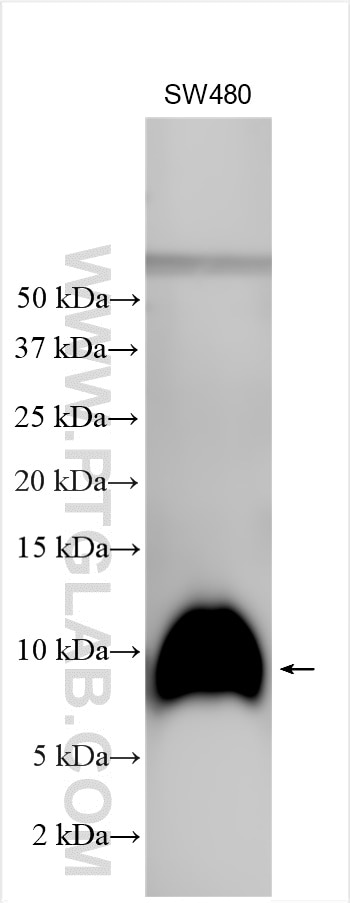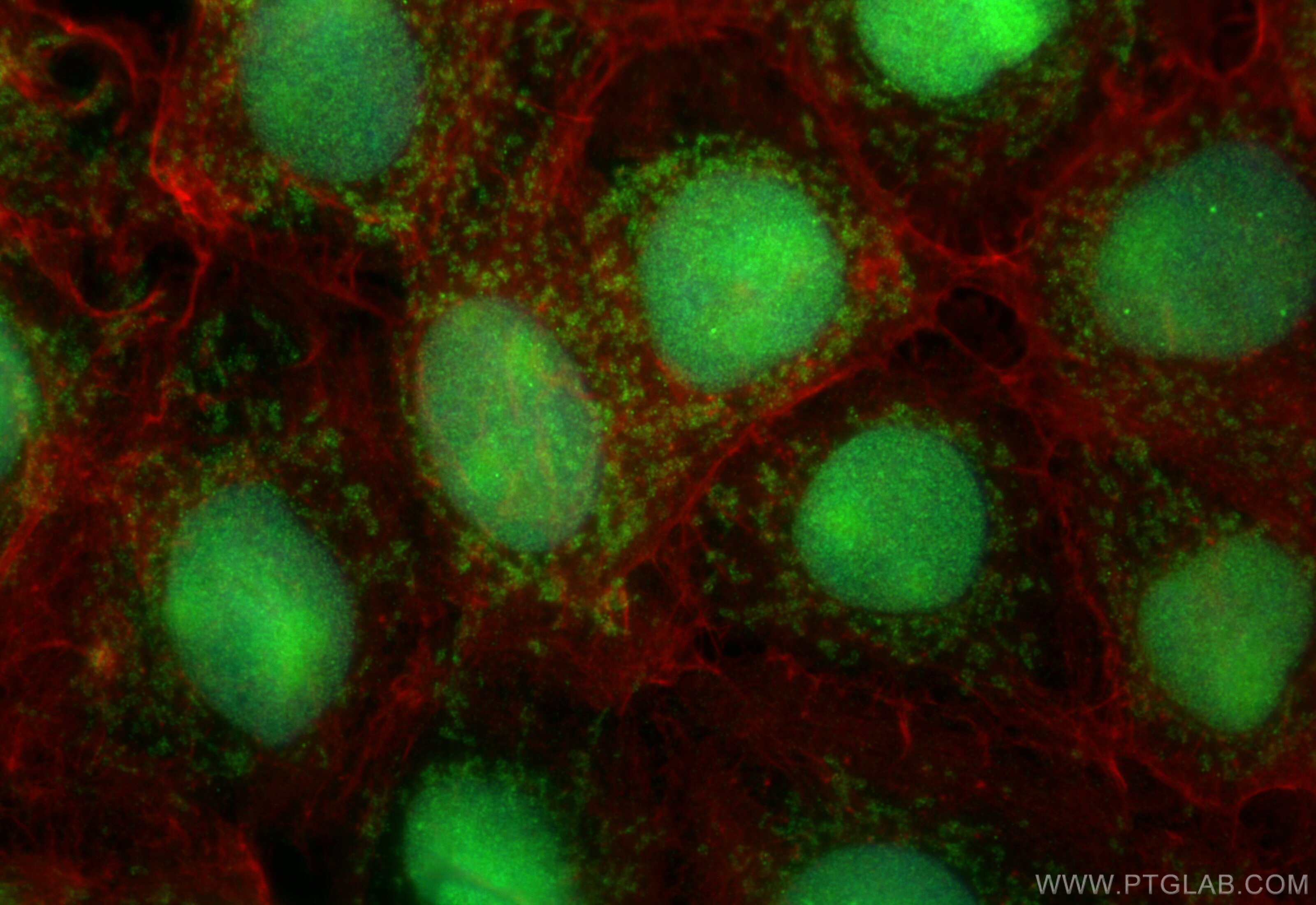Tested Applications
| Positive WB detected in | SW480 cells |
| Positive IF/ICC detected in | A431 cells |
Recommended dilution
| Application | Dilution |
|---|---|
| Western Blot (WB) | WB : 1:500-1:2000 |
| Immunofluorescence (IF)/ICC | IF/ICC : 1:50-1:500 |
| It is recommended that this reagent should be titrated in each testing system to obtain optimal results. | |
| Sample-dependent, Check data in validation data gallery. | |
Product Information
29313-1-AP targets C22orf32 in WB, IF/ICC, ELISA applications and shows reactivity with human samples.
| Tested Reactivity | human |
| Host / Isotype | Rabbit / IgG |
| Class | Polyclonal |
| Type | Antibody |
| Immunogen |
CatNo: Ag29162 Product name: Recombinant human C22orf32 protein Source: e coli.-derived, PGEX-4T Tag: GST Domain: 1-107 aa of BC024237 Sequence: MASGAARWLVLAPVRSGALRSGPSLRKDGDVSAAWSGSGRSLVPSGSVIVTRSGAILPKPVKMSFGLLRVFSIVIPFLYVGTLISKNFAALLEEHDIFVPEDDDDDD Predict reactive species |
| Full Name | chromosome 22 open reading frame 32 |
| Observed Molecular Weight | 10 kDa |
| GenBank Accession Number | BC024237 |
| Gene Symbol | C22orf32 |
| Gene ID (NCBI) | 91689 |
| RRID | AB_3669681 |
| Conjugate | Unconjugated |
| Form | Liquid |
| Purification Method | Antigen affinity purification |
| UNIPROT ID | Q9H4I9 |
| Storage Buffer | PBS with 0.02% sodium azide and 50% glycerol, pH 7.3. |
| Storage Conditions | Store at -20°C. Stable for one year after shipment. Aliquoting is unnecessary for -20oC storage. 20ul sizes contain 0.1% BSA. |
Background Information
C22orf32, also known as SMDT1 or EMRE, is a 10 kDa single-channel transmembrane that contains a mitochondrial targeting sequence, a transmembrane region, and a conserved aspart-rich C-terminal. It acts as a subunit of the MCU complex and increases mCa2+ uptake by activating the MCU function (PMID: 38417574).
Protocols
| Product Specific Protocols | |
|---|---|
| IF protocol for C22orf32 antibody 29313-1-AP | Download protocol |
| WB protocol for C22orf32 antibody 29313-1-AP | Download protocol |
| Standard Protocols | |
|---|---|
| Click here to view our Standard Protocols |






